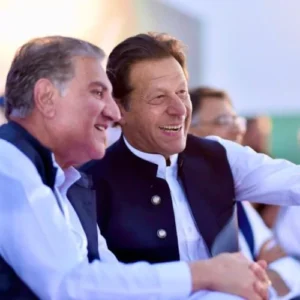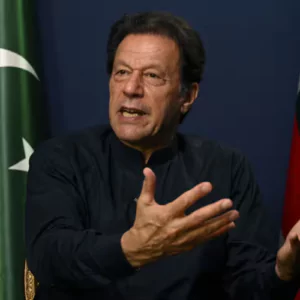Pakistan's former Prime Minister, Imran Khan, has made a cautious offer for dialogue, stating his party's willingness to engage in talks with all political parties except the Pakistan Peoples Party (PPP), Pakistan Muslim League-Nawaz (PML-N), and the Muttahida Qaumi Movement-Pakistan (MQM-P). This announcement comes amidst a period of political uncertainty following his removal from office through a no-confidence vote and the subsequent formation of a coalition government by his opponents.
Khan's offer carries significant weight given his continued popularity and the ongoing protests organized by his supporters. However, his exclusion of specific parties raises questions about the sincerity and potential effectiveness of the proposed dialogue.

The Excluded Three:
- PPP and PML-N: These parties, led by Asif Ali Zardari and Shehbaz Sharif respectively, were the primary architects of the no-confidence vote that ousted Khan. Their inclusion in talks would likely be seen as a betrayal by Khan's core supporters, who view them as corrupt and responsible for the country's woes.
- MQM-P: This party represents the Urdu-speaking community in Karachi, and Khan has had a strained relationship with them in the past. Including them in talks could alienate other segments of his support base who hold different views on Karachi's political landscape.
Conditional Dialogue:
By excluding these key players, Khan risks limiting the scope and potential outcomes of any dialogue. His critics argue that this is merely a strategic move to maintain relevance without offering a genuine path towards reconciliation. They point to his past inflammatory rhetoric towards these parties, questioning his commitment to sincere discussion.
Hope for Compromise?
Despite the limitations, Khan's offer could still pave the way for some level of understanding between his party and others. Smaller parties may see it as an opportunity to engage and potentially influence the political landscape. Additionally, public pressure for stability and progress could encourage even the excluded parties to consider participating in some form of controlled dialogue.
Ultimately, the success of any talks will depend on several factors, including:
- Khan's willingness to compromise: Can he move beyond his grievances and engage in constructive dialogue with his rivals?
- The other parties' response: Will they see merit in engaging with Khan under these conditions?
- The role of external actors: Can influential stakeholders, such as the military or civil society, facilitate a genuine dialogue process?
While the path forward remains uncertain, Imran Khan's conditional offer for talks has injected a new element into Pakistan's already complex political landscape. Whether it leads to meaningful dialogue and compromise or simply serves as another chapter in the ongoing political standoff remains to be seen.

